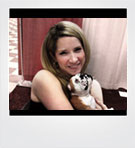
For years, cognitive psychologists have been devising research studies to show us just how cuckoo our thinking and judgment are. Specifically, we're terrible at making decisions based on probabilities and odds - terrible enough to keep over 750 casinos in the U.S. in business. We tend to think of ourselves as outliers (the “lucky” ones who'll beat the odds and win) and to overestimate our personal control (like that “system” you use for playing slots...) These wallet-shrinking thoughts transfer seamlessly to the pool table with the same losing results. Be mindful of your own magical thinking in the following low-probability situations and avoid unrealistic lapses in pool judgment.
1. Your stroke is magic.
We often choose position routes in our heads that defy not only the current power of our strokes but the laws of physics, as well. Be realistic, learn the limits of your stroke as it is today and chose shots that fall within your wheelhouse. Train for a bigger stroke using drills and not during a game.
2. You're in the 1%.
Low-percentage position often involves sending the cue-ball on a route plagued with “dead zones”: areas where you can't directly hit the next object ball because it's blocked by other balls. Look for other ways of approaching the next ball that let you “see” the ball the entire way. Sometimes this means playing for short-side position or playing the cue-ball off different rails to ensure that it remains in open waters.
3. You're smarter than your own brain.
If you can't envision what the shot looks like in your imagination before you shoot, odds are that you won't be able to bring it to fruition on the table. Make sure everything feels right in preparation – good shots don't come out of nowhere.
4. You can avoid unavoidable scratches.
There are certain shots on the table that send the cue-ball into the pocket 99.9% of the time, no matter what speed or cuing you use (e.g. cutting a ball that's sitting in front of the side pocket into the corner pocket.) Learn to identify high-percentage scratches and avoid them all together, you will not be the one who beats the odds!
5. You can get away with show-boating.
We've all missed easy shots because of over-confidence. When you don't put in the required effort, you might end up looking like a fool. This also applies to playing fancy position where none is needed, like drawing the cue-ball the length of the table to shoot an open ball that's hanging in the pocket.
6. You'll put those balls wherever you want.
When planning your position route, avoid routes that send the cue-ball needlessly crashing into other balls. The more collisions, the more planning and control you need to get the result you want.
7. Safety net? You don't need a safety net.
When breaking clusters it's safer and more realistic to have an insurance ball (an open, pocketable ball that isn't part of the cluster) to shoot next in case things blow-up in your face, rather than to rely on getting position on one of the balls in the cluster.
8. This time it's gonna go in.
Don't go for the bank that has a 2% chance of dropping when you have an available safety that will produce ball-in-hand 75% of the time. Take some time to practice circus shots so you get a realistic view of how many times you'll actually make them out of a hundred.
9. How can I miss?
If your plan includes juicing up the ball with both power and english, make a new plan. Correcting for deflection quickly becomes unmanageable as speed increases, meaning that your chances of pocketing the shot are slim to nil.
10. You're still thinking about this stuff.
Thinking before you shoot is crucial to getting a good result. However, there's a time for thinking and a time for action and the two don't mix very well. Once you determine your shot, you need to let the thinking go and switch to 100% execution. Ain't that a kick in the pants?
- Home
- Pooldawg Academy
- Liz Ford
- test your pool judgement
Test Your Pool Judgement
Posted by : Liz Ford